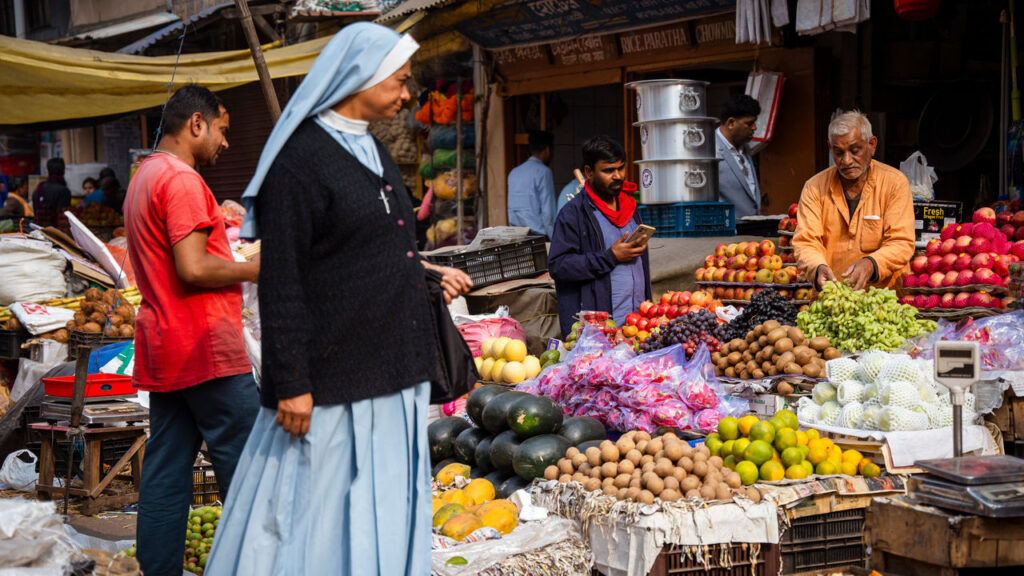As India braces itself for the vital budget announcement scheduled for February 1st, the nation stands on the cusp of significant economic discourse. Prime Minister Narendra Modi, in a somewhat symbolic gesture, has invoked the blessings of Lakshmi, the revered Hindu goddess of wealth, particularly hoping for prosperity to extend to the poorer segments of society and the middle class. This call for divine assistance reflects not only a cultural tradition but also an acute understanding of the prevailing economic sentiments among the population.
The prime minister’s appeal to Lakshmi aligns with a palpable public mood shaped by dissatisfaction regarding economic progress and rising unemployment rates. These frustrations were notably instrumental in Modi’s inability to retain his outright majority during the previous year’s elections, a setback that has left a notable impact on his government. Economic issues have gained visibility, and as Modi’s administration prepares for the upcoming budgetary decisions, the pressure to address these concerns intensifies.
Intriguingly, the recent fiscal measures announced by Finance Minister Nirmala Sitharaman suggest a shift in focus. While Modi’s initial call seemed aimed at uplifting the economically disadvantaged, the practical outcomes of the budget illustrate a different narrative. In her announcement, Sitharaman revealed an ambitious package of tax cuts, amounting to approximately 1 trillion rupees annually, translating into roughly $12 billion, which represents about 0.3% of India’s GDP. This substantial reduction has effectively exempted millions of high-earning individuals from the burden of income tax, thereby benefitting the middle class significantly more than the intended target of the poor.
The implications of these tax adjustments are manifold. They serve to relieve the financial strains faced by a demographic critical to India’s economic landscape — the middle class. By easing tax obligations, the government aims to stimulate consumer spending, which is vital for spurring economic growth. Middle-income earners, who often juggle multiple economic responsibilities from housing to education, can utilize the extra funds to enhance their quality of life and potentially reinvest into the economy. Nonetheless, this approach raises questions about the distribution of economic prosperity and whether it aligns with the needs of the poorest citizens, who continue to grapple with the lingering effects of economic disparity.
Furthermore, the juxtaposition of Modi’s immediate appeal to the poorer sections of the society and the subsequent tax relief targeted at the middle class embodies a complex political calculus. It appears to highlight a transitional phase within Modi’s administration, where it is essential to balance the demands of the electorate with the practicality of governance. This convergence of public sentiment with political strategy underscores a broader trend within Indian politics, where economic gestures are meticulously shaped to appeal to a specific voter base, while also addressing the overarching goal of economic stability and growth.
Against this backdrop, the upcoming budget will serve as a litmus test for Modi’s government, as it requires a deft maneuvering of fiscal policies to appease both the immediate needs of the poor while also securing the favor of the economically mindful middle class. Analysts and citizens alike will be keenly observing the direction of the government’s financial planning, looking for evidence of equitable growth strategies that extend beyond mere tax breaks.
In conclusion, as the February 1st budget approaches, the intersection of cultural symbolism, economic policy, and political strategy becomes increasingly apparent. The calls to Lakshmi resonate within a populace that seeks reassurance of the government’s commitment to addressing disparities while navigating the complexities of fiscal responsibility. The true measure of success will ultimately depend on how effectively the Modi administration can translate its intentions into actionable outcomes that promote growth and prosperity for all segments of the Indian population, thereby reinforcing its mandate amidst a changing electoral landscape.



